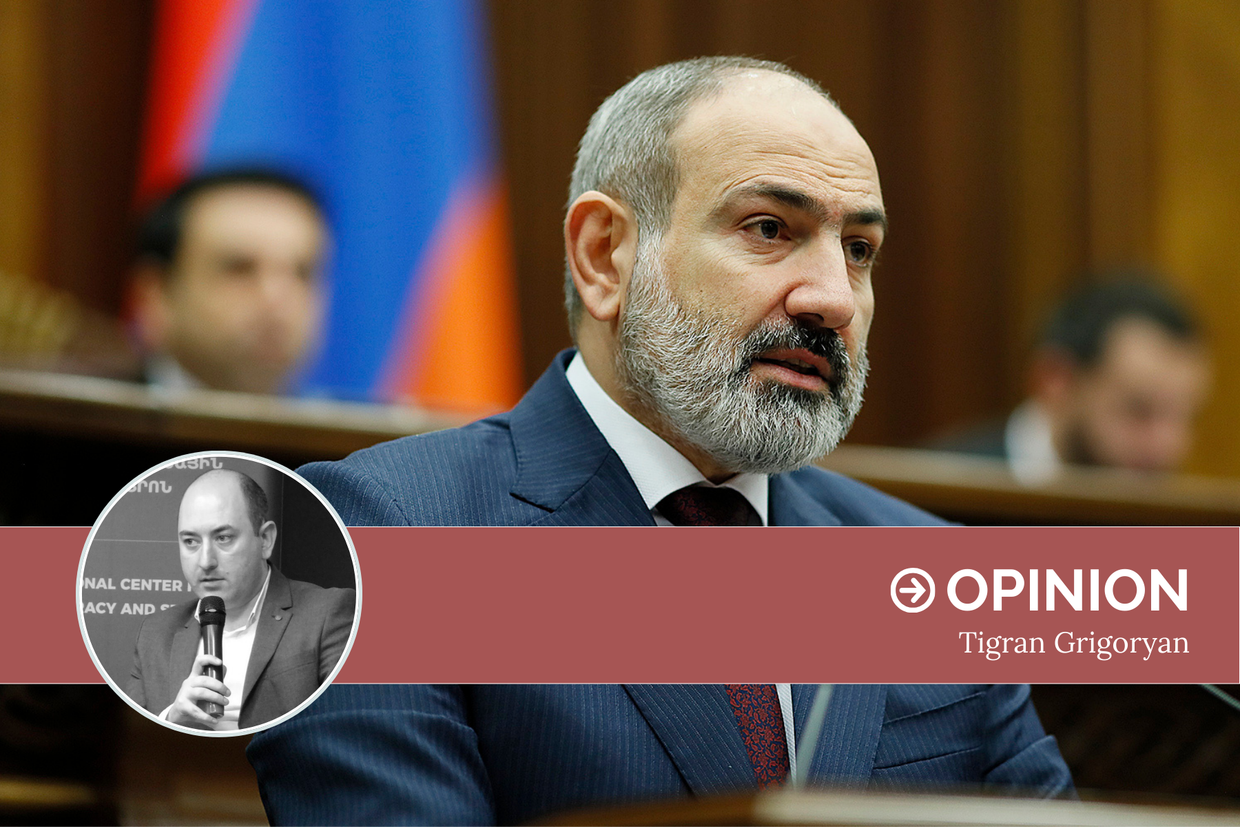
Armenian Prime Minister Nikol Pashinyan has criticised the now-dissolved OSCE Minsk Group, saying that looking back, he saw ‘there has never been anything useful in the activities of that group’. The statements echo those of Azerbaijani President Ilham Aliyev, who regularly and harshly criticised the group.
Pashinyan offered his remarks on Wednesday at a Q&A session at parliament.
‘[The Minsk Group’s] work was aimed at deepening the conflict and serving as a lever to keep not only Armenia but the entire region in a “puppet position” ’, the Armenian state agency Armenpress quoted Pashinyan as saying.
Pashinyan further claimed that all negotiations under the Minsk Group format were aimed at increasing Armenia’s dependence on others and reiterated his claim that the Nagorno-Karabakh issue had been resolved long ago, only ‘we were not informed about it’.
‘If it had been resolved, why weren’t we told? Because the issue of Armenia was on the agenda. How to resolve the issue of Armenia? What would have happened as a result? There would have been a division of Armenia’s territorial integrity, a loss of sovereignty, and a loss of independence’, Pashinyan said.
Pashinyan’s remarks regarding the OSCE Minsk Group, which had been the only internationally mandated format for mediating the Nagorno-Karabakh conflict, came following its official dissolution that began on 1 September.

Pashinyan and Aliyev signed an application to dissolve the Minsk Group in early August during an unprecedented US summit between the two leaders, along with US President Donald Trump.
The group’s dissolution had long been a demand by Azerbaijan as a precondition to signing a peace agreement with Armenia, which still remains unsigned, but was initialled in Washington in August.
Aliyev has repeatedly criticised the Minsk Group using harsh language — the latest attack came in late August, when Aliyev announced in Kalbajar that Azerbaijan had achieved what it wanted — ‘the contemptible Minsk Group is living its last days’.
‘In fact, it did not and could not do anything’, he said.
There are forces that want to ‘abort established peace’
While at parliament, Pashinyan reiterated that peace was established between Armenia and Azerbaijan on 8 August during the Washington summit. He claimed, however, that this peace was ‘outside’ the political agenda of many, accusing certain unnamed groups of seeking to ‘destroy’ and ‘abort’ the peace.
‘It is impossible not to see that there are forces with such interests in Armenia, both in the distant and near vicinity’, Pashinyan said, and later directly accused the opposition of seeking such.
MP Anna Grigoryan, from the opposition Armenia Alliance faction, argued that despite Pashinyan’s efforts to ‘persuade’ the public, no peace has been established. In response, Pashinyan directly accused the opposition of having intentions to ‘destroy’ peace.
‘I will not allow you to do that, do not even dream of it’, Pashinyan said.
‘Whoever threatens the independence and sovereignty of Armenia, I will threaten [them] in such a way that their blood pressure will increase’, Pashinyan warned.












